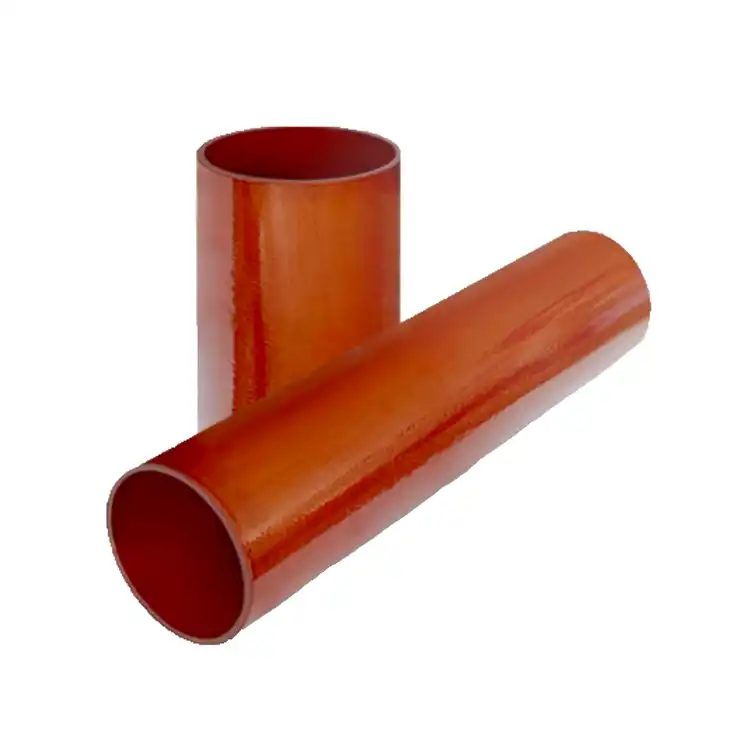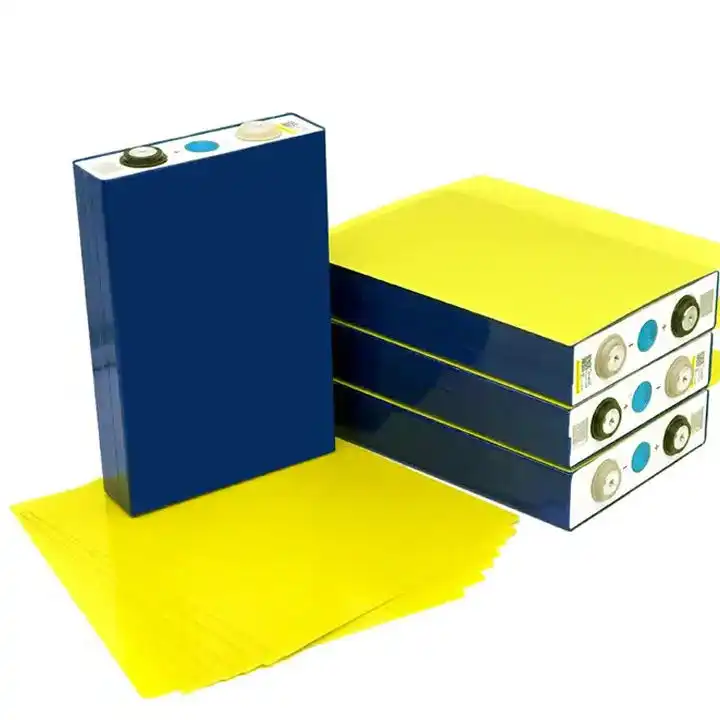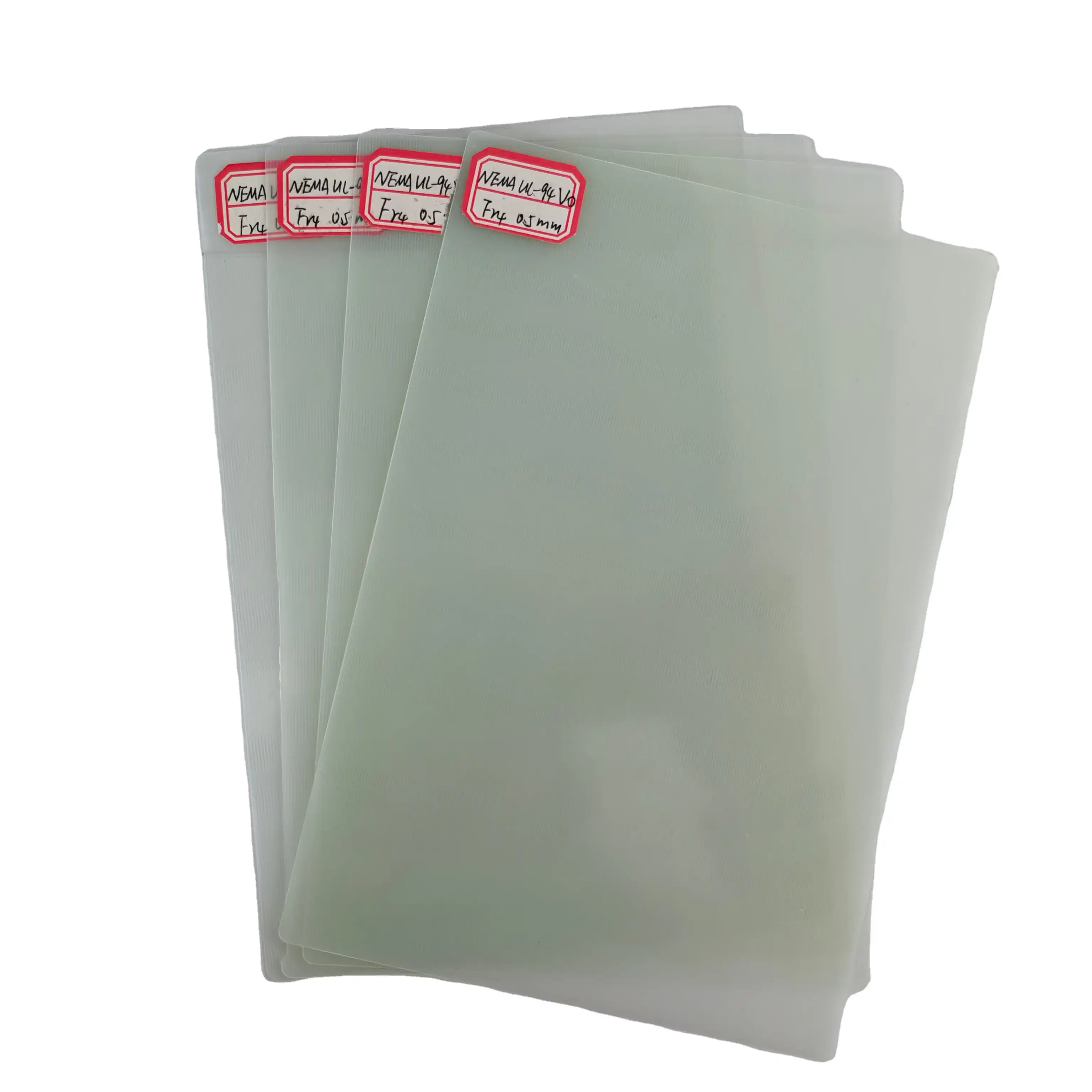Is Bakelite Sheet Heat-Resistant?
2024-07-12 15:15:46
Because of its durability and strength, bakelite sheets have long been a standard in both commercial and residential settings. One of Bakelite's most notable characteristics is its heat resistance, which makes it an ideal material for a range of applications. This blog explores the advantages and applications of Bakelite sheets across several sectors, along with its capacity to tolerate high temperatures.
How Does Bakelite's Chemical Composition Contribute to Its Heat Resistance?
Bakelite, a thermosetting phenol-formaldehyde resin, is extremely heat resistant due to its unique chemical composition and structure. Due to these characteristics, bakelite is still the material of choice for high-temperature applications.
The phenolic resin structure of bakelite is primarily responsible for the material's heat resistance. When heated, the polymer hardens into a molecule that has a lot of cross-linking. This cross-linking improves the material's resistance to deformation at high temperatures and thermal stability.
Cross-Linking: Bakelite forms cross-links because the polymer chains are held together by strong covalent bonds. Because of this bond network, a structure that is both rigid and stable can withstand high temperatures without melting or deforming. When a material is subjected to heat stress, the curing process, which is typically carried out at high temperatures, ensures that it retains its mechanical properties and remains solid.
Thermal Decomposition When heated to temperatures greater than 300 degrees Celsius, bakelite decomposes. Bakelite can withstand a lot of heat without deteriorating because of its high decomposition temperature. In contrast to other plastics, which may melt or soften at lower temperatures, bakelite is suitable for applications that require prolonged heat exposure.
Due to its heat resistance, Bakelite stands out from other common materials like PVC, ABS, and some thermoplastics.
PVC and ABS, two types of plastic that soften or melt when heated, cannot be used in applications requiring a significant amount of heat. Bakelite, on the other hand, can withstand high temperatures because it is thermoset. Applications that resist heat prefer it as a result.
Metals Metals like aluminum and steel are able to withstand high temperatures, but they can also conduct heat, which can be a disadvantage in some circumstances. With regards to giving warm protection and strength, bakelite enjoys a particular benefit because of its intensity obstruction and protection properties.
Thermal Insulation and Fire Resistant Properties Bakelite's fire resistance and thermal insulation properties enhance its heat resistance.
Bakelite's ability to self-extinguish in flames and resist ignition further enhances its suitability for high-temperature environments. Fire Resistant Properties The material chars instead of burning, forming a protective layer that aids in flame containment.
Due to its low thermal conductivity, bakelite is an excellent thermal insulator. This property is advantageous for applications where heat must be contained or components must be shielded from external heat sources.

What Are the Applications of Heat-Resistant Bakelite Sheets?
Bakelite sheets are essential for numerous electrical, domestic, and industrial applications due to their heat resistance. The most significant applications for Bakelite's thermal stability are discussed in this section.
In the electrical and electronic industry, where components frequently need to withstand high temperatures, bakelite's heat resistance is essential.
Bakelite sheets are frequently used to make electrical insulators. They maintain the safety of electrical systems and prevent short circuits and other heat-related failures by maintaining their insulating properties at high temperatures.
Printed Circuit Boards (PCBs) Bakelite, which can withstand the heat generated by electronic components, serves as the base material for printed circuit boards. The circuit board maintains its integrity and ensures consistent performance over time thanks to its thermal stability.
The heat resistance of Bakelite has a significant impact on the automotive and aerospace industries.
High temperatures can cause damage to bakelite engine components like distributor caps and ignition systems. These parts will continue to work reliably and without deterioration because they are thermally stable.
Applications in aerospace components that are in flight and exposed to extreme temperatures necessitate bakelite's heat resistance. It is an essential material for aircraft interiors and systems due to its ability to maintain structural integrity and provide thermal insulation.
In a lot of modern applications where heat resistance is important, bakelite sheets are used.
Equipment and Machinery Bakelite is used to make industrial machinery's insulators, bearings, and gears, all of which must withstand high temperatures while in use. Long-term performance and dependability are assured by its durability and thermal stability.
Due to its resistance to heat and chemicals, bakelite is suitable for the equipment and containment systems of chemical processing plants. Due to its ability to withstand harsh environments, it is effective and safe to use.
Due to its heat resistance, bakelite is utilized in numerous household appliances and products.
Handles for Cookware Bakelite is a popular choice for handles for cookware like pots and pans because it resists heat and feels cool to the touch. This application makes the kitchen safer and easier to use.
Appliances like toasters and hairdryers benefit from the insulation and heat protection offered by bakelite components. This guarantees that the appliances will operate safely.
Why Is Bakelite Still a Preferred Material for Heat-Resistant Applications?
Despite the availability of newer materials, bakelite is still the most widely used material for heat-resistant applications. In this section, we look at the reasons why it is still relevant.
The extensive application history of Bakelite demonstrates the material's performance and dependability.
Bakelite has been regarded for its fierce opposition ever since its creation in the middle of the twentieth century. Its widespread use in critical applications has established its reputation as a trustworthy material.
Numerous tests and applications in real-world settings have demonstrated Bakelite's reliability in challenging environments. Due to its field-tested dependability, designers and engineers can rest assured that it is suitable for contemporary applications.
Due to its adaptability, Bakelite can be used for a wide range of heat-resistant applications.
Options for Personalization Bakelite can be customized by adding a wide variety of fillers and additives to improve specific properties like mechanical strength or thermal stability. Because of this customization, Bakelite is able to meet the particular requirements of various applications.
Bakelite can be produced and utilized effectively in current applications due to its compatibility with current manufacturing technologies like CNC machining and molding.
Cost-Effectiveness Bakelite is an option that offers high performance at a reasonable price for a variety of heat-resistant applications.
Production Efficiencies Bakelite is an appealing option for large-scale production due to its relatively straightforward and cost-effective manufacturing process. It will continue to be used in businesses where cost control is very important because it works.
Bakelite saves money and the environment by not needing to be replaced as frequently due to its durability and long service life. Due to their resistance to wear and tear, bakelite components last longer, resulting in less waste and lower maintenance costs.
When compared to other contemporary synthetic materials, bakelite has a relatively low impact on the environment. Its long lifespan and durability reduce waste and the need for frequent replacements.
Sustainability Despite the fact that Bakelite cannot be broken down through biodegradation, the material's long service life contributes to the use of materials that are better for the environment. As more Bakelite-based products are repurposed, Bakelite's natural profile improves.
More and more bakelite products are being recycled and reused, which reduces waste and promotes sustainability. As a result of these efforts, bakelite production and use have less of an impact on the environment.
Conclusion
Bakelite sheets' distinct chemical makeup and thermal stability give them exceptional heat resistance. Their characteristics render them appropriate for an extensive array of uses, encompassing anything from industrial gear and domestic objects to electrical insulation and automobile parts. Because of its dependable performance, adaptability, and affordability, bakelite is certain to be relevant in contemporary engineering and production. Bakelite sheets continue to be a trustworthy and efficient option as long as businesses value heat resistance and dependability.
References
1. **The History and Uses of Bakelite**. (n.d.). Retrieved from [Science History Institute](https://www.sciencehistory.org/historical-profile/leo-hendrik-baekeland-and-bakelite)
2. **Bakelite: The Material That Changed the World**. (2023). Retrieved from [American Chemical Society](https://www.acs.org/content/acs/en/education/whatischemistry/landmarks/bakelite.html)
3. **Applications of Bakelite Sheets**. (2022). Retrieved from [ResearchGate](https://www.researchgate.net/publication/322658616_Applications_of_Bakelite_Sheets)
4. **Phenolic Resins in Industrial Applications**. (2021). Retrieved from [Construction Specifier](https://www.constructionspecifier.com/phenolic-resins-in-industrial-applications/)
5. **The Versatility of Bakelite in Modern Manufacturing**. (2020). Retrieved from [Industry Week](https://www.industryweek.com/technology-and-iiot/the-versatility-of-bakelite-in-modern-manufacturing)
6. **Thermosetting Plastics: Properties and Applications**. (2021). Retrieved from [Materials Today](https://www.materialstoday.com/thermosetting-plastics-properties-and-applications/)
7. **UL 94 Standard for Safety of Flammability of Plastic Materials for Parts in Devices and Appliances Testing**. (2023). Retrieved from [UL Standards](https://standardscatalog.ul.com/standards/en/standard_94_5)
8. **Thermal Stability of Polymers**. (2022). Retrieved from [Polymer Science](

_1732777843529.webp)



_1747991245292.webp)

